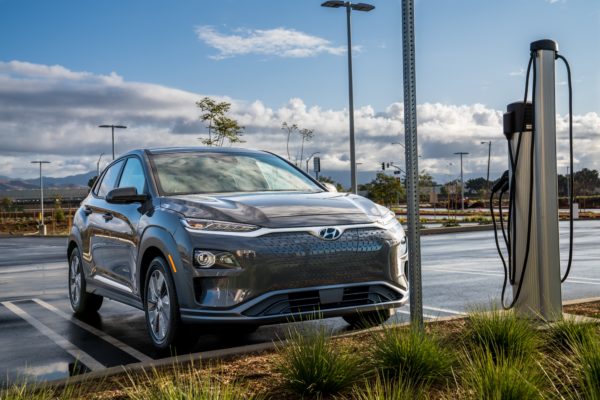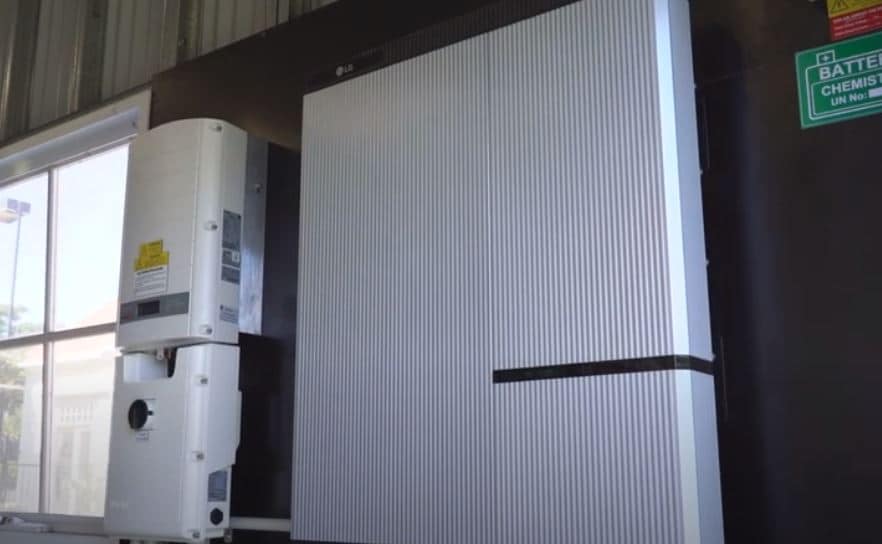The ACCC has issued a recall notice for a series of batteries in LG Chem’s recently rebranded energy storage division’s lithium-ion RESU residential range due to the risk of the batteries overheating.
The independent statutory authority said LG Energy Solution’s RESU7H_Type R, RESU10, RESU10H Type-C, RESU10H_Type R, EM048063P3S4 and EM048126P3S7 home batteries were being recalled in Australia due to the risk of batteries overheating and catching fire.
“The affected batteries are equipped with cells from specific production lots manufactured between March 2017 and September 2018,” the ACCC said in a notice published late last week.
“If the batteries overheat, there is an increased risk of fire which may result in an injury or death and/or property damage.”
The ACCC’s move formalises the South Korean battery manufacturer’s voluntary Australian recall issued last month after reports of “thermal events” in the United States.
LG Energy Solution said it had received “isolated reports” about overheating incidents linked to home BESS installations.
“As a precautionary measure and out of an abundance of caution, LG Energy Solution has decided to replace all potentially affected home batteries, equipped with cells from limited specific production lots, free of charge,” the company said in a note on its website.
LG Energy Solution Australia said products included in the recall will be replaced free of charge.
The company said it is also implementing a remote software upgrade for a number of online affected RESU10H Type-R and RESU7H Type-R units to lower the maximum state of charge to 90% until they can be replaced. The upgrade is only applicable to online units which have sufficient online connectivity to be able to receive the software upgrade.
The recall shapes as a setback for LG Energy Solution which has been planning to roll out the third iteration of its RESU home batteries, including “the industry’s largest home battery”, the RESU16H Prime 16 kWh battery pack. The new Prime line-up was scheduled to arrive in Australia later this month.

Image: Hyundai
In another blow for the company, LG Energy Solution is also embroiled in one of the first mass battery pack replacements conducted by a major automaker.
Hyundai has announced it will replace battery systems in some 82,000 electric vehicles (EV) globally at an estimated cost of more than $1.2 billion due to a serious fire risk.
There has been more than a dozen reported fires overseas related to the Hyundai Kona’s battery pack which use LG Chem cells. Hyundai was not aware of any incidents of Kona EVs catching fire in Australia.
The recall applies to nearly 76,000 Kona EVs built between 2018 and 2020. Some Ioniq EV models and Elec City buses are also included in the recall.
Hyundai Australia confirmed it will recall most of the 1001 Kona EVs sold in Australia since their launch two years ago, and many of the 755 fully electric Ioniq cars sold in Australia (but not the hybrid or the plug-in hybrid versions).
Hyundai said the battery system subject to the replacement was manufactured by LG Energy Solutions between November 2017 and March 2020.
Hyundai did not comment on the cause of the fires but suggested the affected vehicles should not be parked in a garage and should ideally be parked in an open space away from flammable materials to minimise further damage if the vehicle does catch fire.
Kona and Ioniq owners are also advised to limit battery charging to 90% of capacity until the battery has been replaced.
This content is protected by copyright and may not be reused. If you want to cooperate with us and would like to reuse some of our content, please contact: editors@pv-magazine.com.









5 comments
By submitting this form you agree to pv magazine using your data for the purposes of publishing your comment.
Your personal data will only be disclosed or otherwise transmitted to third parties for the purposes of spam filtering or if this is necessary for technical maintenance of the website. Any other transfer to third parties will not take place unless this is justified on the basis of applicable data protection regulations or if pv magazine is legally obliged to do so.
You may revoke this consent at any time with effect for the future, in which case your personal data will be deleted immediately. Otherwise, your data will be deleted if pv magazine has processed your request or the purpose of data storage is fulfilled.
Further information on data privacy can be found in our Data Protection Policy.